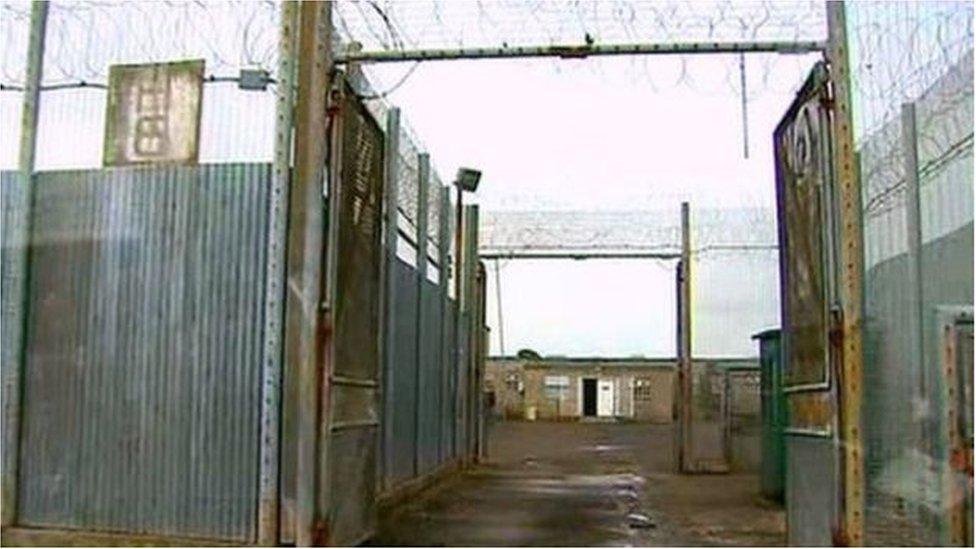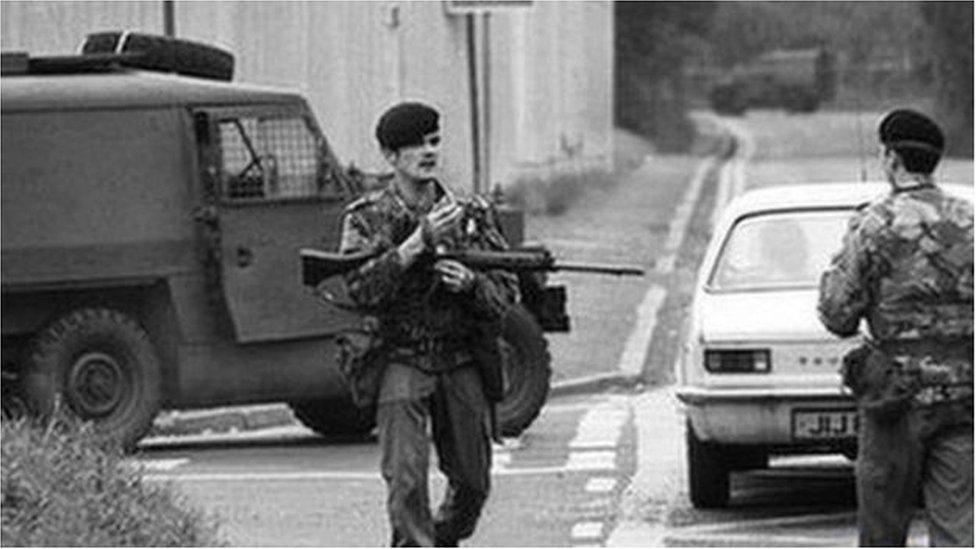Kevin Artt, Maze Prison escapee, has convictions quashed
- Published

The entrance to H-6 inside the former maximum security prison
A man who escaped and fled to the US after being jailed for an IRA murder is to have his convictions quashed, the Court of Appeal has ruled.
Judges held that some notes from police interviews where Kevin Artt confessed to killing Maze Prison deputy governor Albert Miles were re-written.
Mr Miles was shot in front of his wife at their north Belfast home in 1978.
Lord Justice Stephens said the statements were the "only evidence against" Mr Artt.
"It follows that we consider that the fresh evidence might have led to a different result in the case, and we cannot regard the convictions as safe," he added.
Mr Artt, 61, was convicted of the murder in 1983 and sentenced to life imprisonment after his case formed part of Northern Ireland's first-ever "supergrass" trial.
Later that year, he joined 37 other inmates involved in a mass IRA escape from the Maze - the biggest jailbreak in UK history.
He fled to America, settling in California and establishing himself as a successful car salesman.
In 1992 he was arrested on a passport violation, leading to the British authorities seeking his extradition.
But following a protracted process, the US courts ruled against sending him back.

A huge security operation was launched after the Maze escape in 1983
Two years ago, Mr Artt, who has remained on the US west coast ever since, resurrected an appeal he had lodged before the prison breakout.
Alleged irregularities in an admission to the murder he made during police interviews in 1981 were central to the bid to clear his name.
Those confessions were obtained following lengthy interrogation sessions involving a combination of ill-treatment, coercion, threats, and misleading promises, it was claimed.
RUC officers were said to have confronted him with a co-accused and threatened he would "rot in jail", serving 30 years behind bars if he did not confess.
Alternatively, Mr Artt's legal team contended, police pledged to speak up for him and help secure a shorter sentence if he showed "true remorse".
Crucially, forensic tests were carried out on the original handwritten interview notes containing his admissions.
Experts concluded that some of the police notes were not contemporaneous.
'Sense of unease'
The prosecution agreed that the trial judge may have doubted RUC evidence about what occurred during the interviews, if the forensic material had been available to him.
On that basis, Lord Justice Stephens pointed out that any reduction in the reliability of the police officers might have led to Mr Artt being seen as more truthful.
Quashing the convictions, he said: "In the absence of satisfactory explanations for the rewriting of interview notes, we have a significant sense of unease as to whether the judge's conclusion would have been the same if the issue had been explored before him, and therefore as to whether he would have admitted the statements in evidence."
Following the verdict, his lawyer said Mr Artt had always maintained his innocence.
Fearghal Shiels, of Madden & Finucane Solicitors, said: "The statement which he signed implicating himself in the murder was the only evidence against him at trial.
"That statement was wholly unreliable, and was the product of erroneous information fed to him by police officers throughout seven days of sustained interrogation in 1978 and 17 further interviews over five days in 1981."
Mr Shiels added: "Scientific techniques which were not available at the time of his trial have shown that the interview notes which police witnesses told the trial judge were written contemporaneously in fact were not.
"This is the latest in a number of appeals in this jurisdiction which highlight a depressing enthusiasm on the part of RUC officers to lie on oath to a court to secure a conviction of an innocent man at any cost."